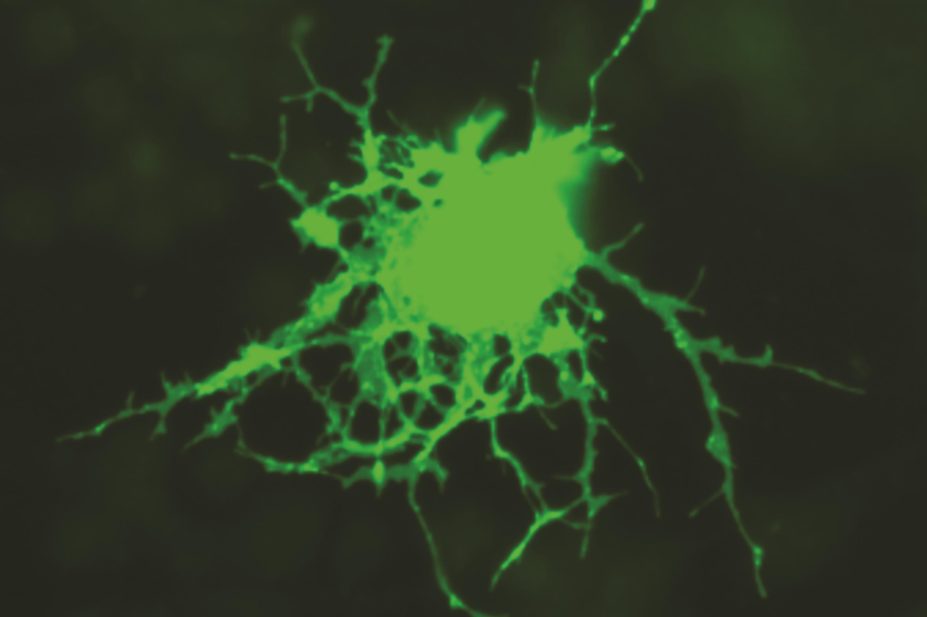
Wikimedia Commons
Stem cells in the central nervous system known as oligodendrocyte progenitor cells (OPCs) are the principal source of myelinating oligodendrocytes. In patients with multiple sclerosis (MS), these cells are abundant yet fail to differentiate.
Now, US researchers have managed to isolate OPCs and test the ability of hundreds of bioactive small molecules to stimulate myelination. Writing in Nature
[1]
(online, 20 April 2015), they reveal that two drugs — the antifungal miconazole and the steroid clobetasol — were each effective in increasing oligodendrocyte numbers and promoting myelination.
Furthermore, in a mouse model of MS, administration of these drugs led to a “striking” reversal of disease severity. The results provide a rationale for testing clobetasol and miconazole to enhance remyelination in patients, the researchers conclude.

